Typhoons are forcing these women into the Philippines' sex trade
In the Philippines, women and girls are increasingly falling victim to trafficking amidst displacement due to the effects of climate change


Celebrity news, beauty, fashion advice, and fascinating features, delivered straight to your inbox!
You are now subscribed
Your newsletter sign-up was successful
In the Philippines, women and girls are increasingly falling victim to trafficking amidst displacement due to the effects of climate change
Words and photographs by Hannah Reyes Morales
When Gemma first started working in the red light district of Angeles City, Philippines, she was given a knife and pepper spray by her sisters. The eldest, Jojo, asked that she always text the name and room number of the motel where a man would take her.
The sisters wept.
Angeles City, home to a red light district just North of Manila, has been dubbed the ‘Supermarket of Sex’. The sisters never planned to come here. They were honors students in high school, and their mother described them as having been “godly children”.
Jojo and Gemma are among the Filipino women that have entered the Philippines’ sex trade amidst displacement from typhoons, coupled with a lack of decent livelihood in their provinces. The Philippines consistently makes the lists of countries most affected by climate change with its frequent storms. Among the most vulnerable regions is Eastern Visayas, where Jojo and Gemma are from. It’s a place reliant on agriculture and one of the poorest regions in the Philippines. It was Ground Zero for typhoon Haiyan.
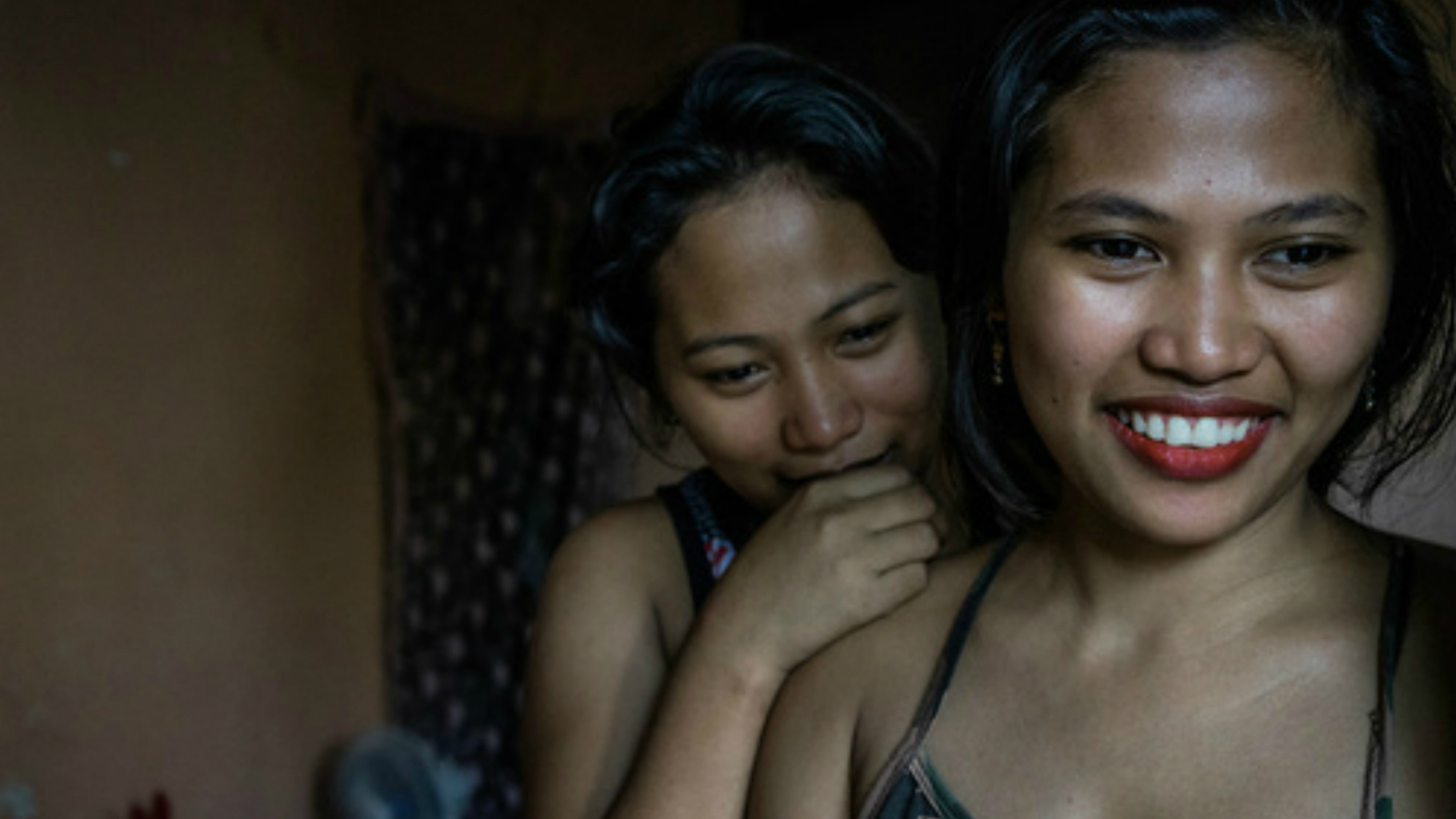
A report from ADB links natural disasters with extreme poverty, stating: “This reliance [on agriculture] is most striking in Eastern Visayas where almost half of household incomes of the poorest 40% households are derived from earnings from agriculture highlighting their vulnerability to poverty from natural calamities.”
Celebrity news, beauty, fashion advice, and fascinating features, delivered straight to your inbox!
Typhoon Haiyan hit the Philippines in 2013, displacing an estimate of 4 million people. It is one of the strongest tropical cyclones ever recorded. After Typhoon Haiyan, the United Nations Population Fund estimated that 5,000 women were subjected to sexual violence just in the month after the storm. Darlene Pajarito, the head of the Philippines Anti Trafficking unit, describes the wake of typhoon Haiyan as a ‘feast for human traffickers.’ The U.S. State Department’s Trafficking In Persons Report stated that internally displaced people, particularly from typhoon-stricken communities, “…are subjected to domestic servitude, forced begging, forced labor in small factories, and sex trafficking in Manila, Cebu, Angeles, and urbanized cities in Mindanao.”
For many, leaving the sex trade is not an option. In Angeles City, the Philippines’ primary red light district thrives with foreigners, and Filipina women making money in its bars. They can make money from various acts, from earning commission when a customer buys them drinks, engaging in sexual activities after a customer pays the ‘bar fine’ to take them out of their shift, or selling their virginity as a ‘cherry girl’.

“In this town, most of the women are from Samar and Leyte,” a sex worker tells us. Around the Philippines, these women are perceived by society as ‘gold diggers’. But what echoes in the stories is that they are not gold diggers — they are breadwinners.
Jojo, Gemma, and Joanne have the responsibility to feed their family and maintain their home. They are working so their mom can seek treatment for her breast cancer. “We have no plans to go back there,” Jojo says. “Here there’s at least some way to make a living. And here, there’s tequila.”
When Haiyan came, the roof of their house got blown off, the walls completely destroyed. The store their mother ran was looted, and almost nothing was left. Jojo describes nights on the streets of Angeles City as affording small steps in rebuilding a home — going home with a foreigner can get her enough money for hollow blocks, then maybe next time a bit of plywood, the roof. Their house is by a lush green field and the mountains, and Jojo worked nights to help get it rebuilt. The walls inside are blue, with photographs of the girls, still water damaged from typhoons.
Back in Leyte, their mother lives in that house. It withstood the last rainfall.
* Report by MAPS agency*
*'Shelter from the Storm' is a photo project that examines the displacement of Filipina women after frequent typhoons, and how this has made them more vulnerable to sexual violence and trafficking. The project was produced by Hannah Reyes Morales*
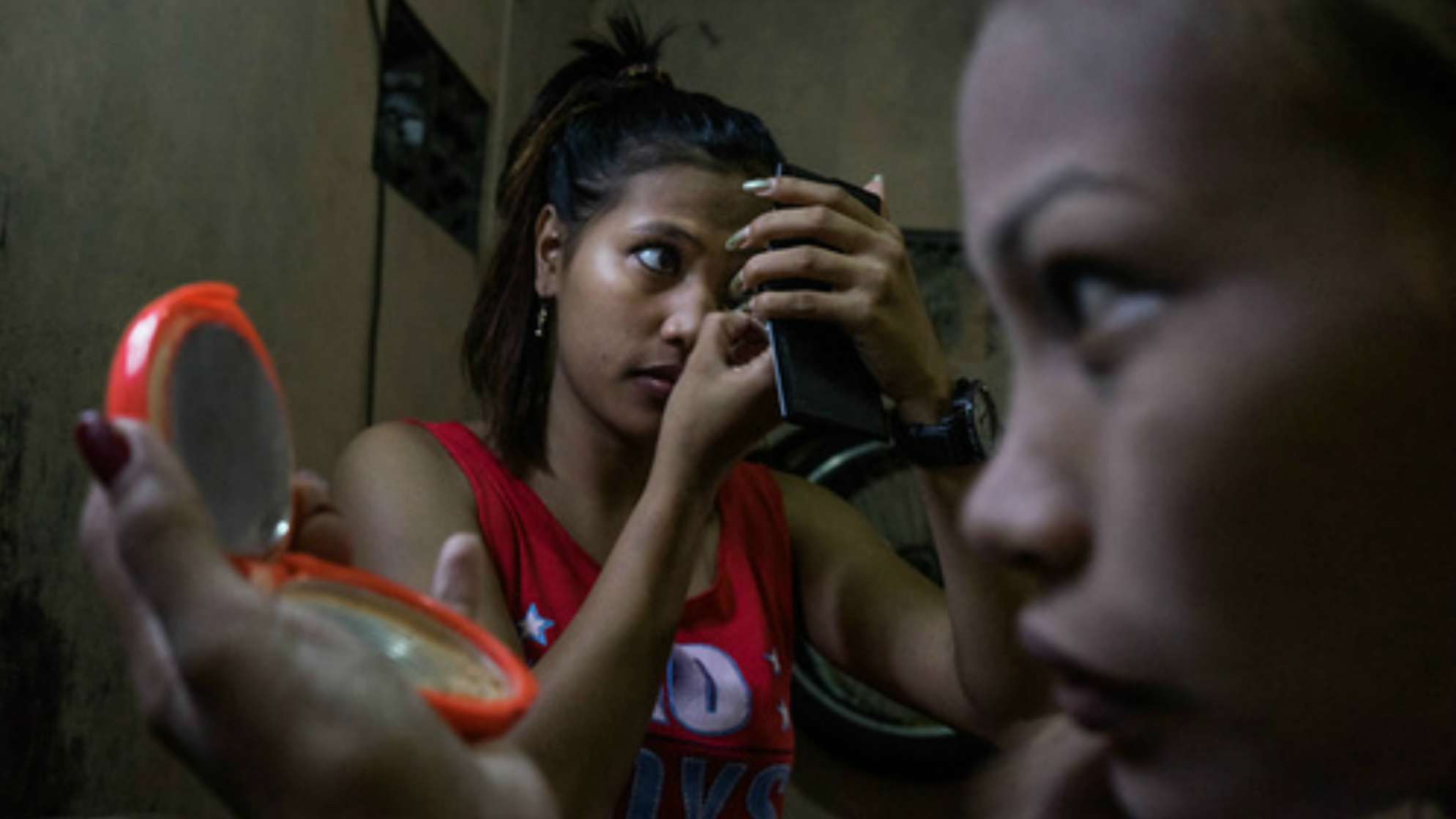
Sisters Gemma and Jojo do their make up before a night at work in Angeles City, notorious for its sex tourism
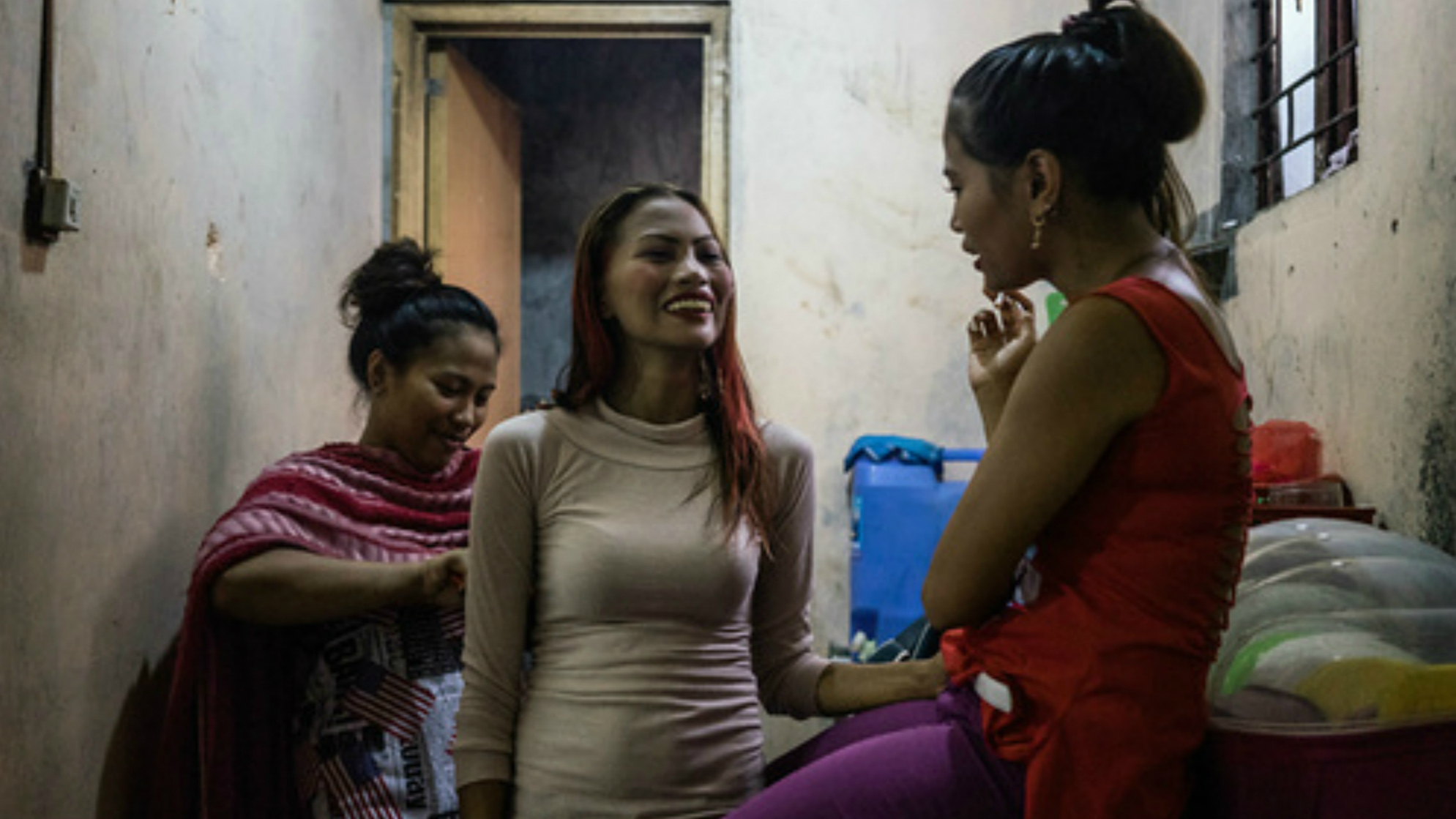
Angeles City is known as the 'Supermarket of Sex' in the Philippines, and many of the women who work there, such as Jojo (centre) and Joanne (left) are from climate vulnerable areas such as Samar and Leyte
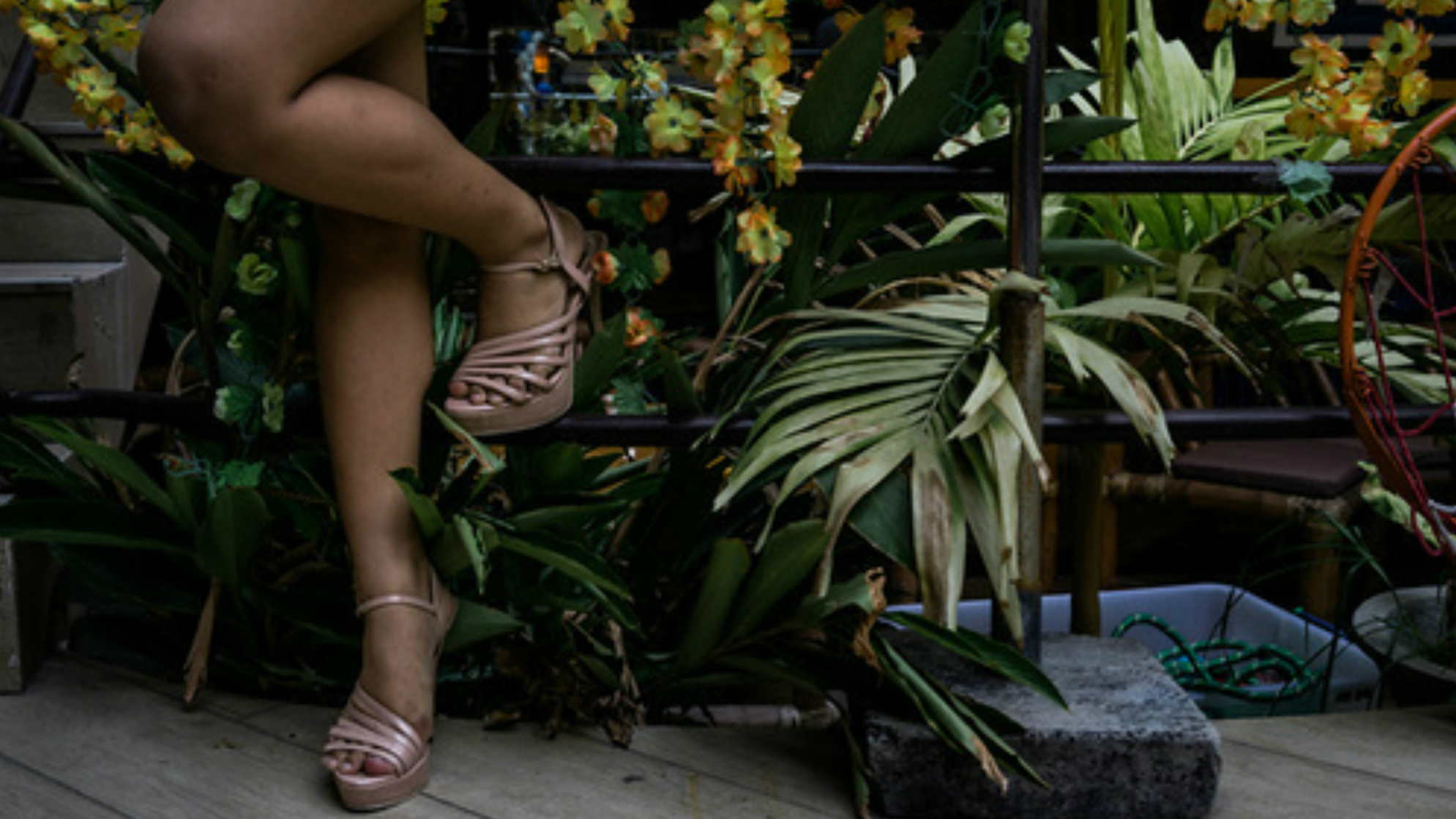
A woman's shoes are seen in a day bar in Angeles City
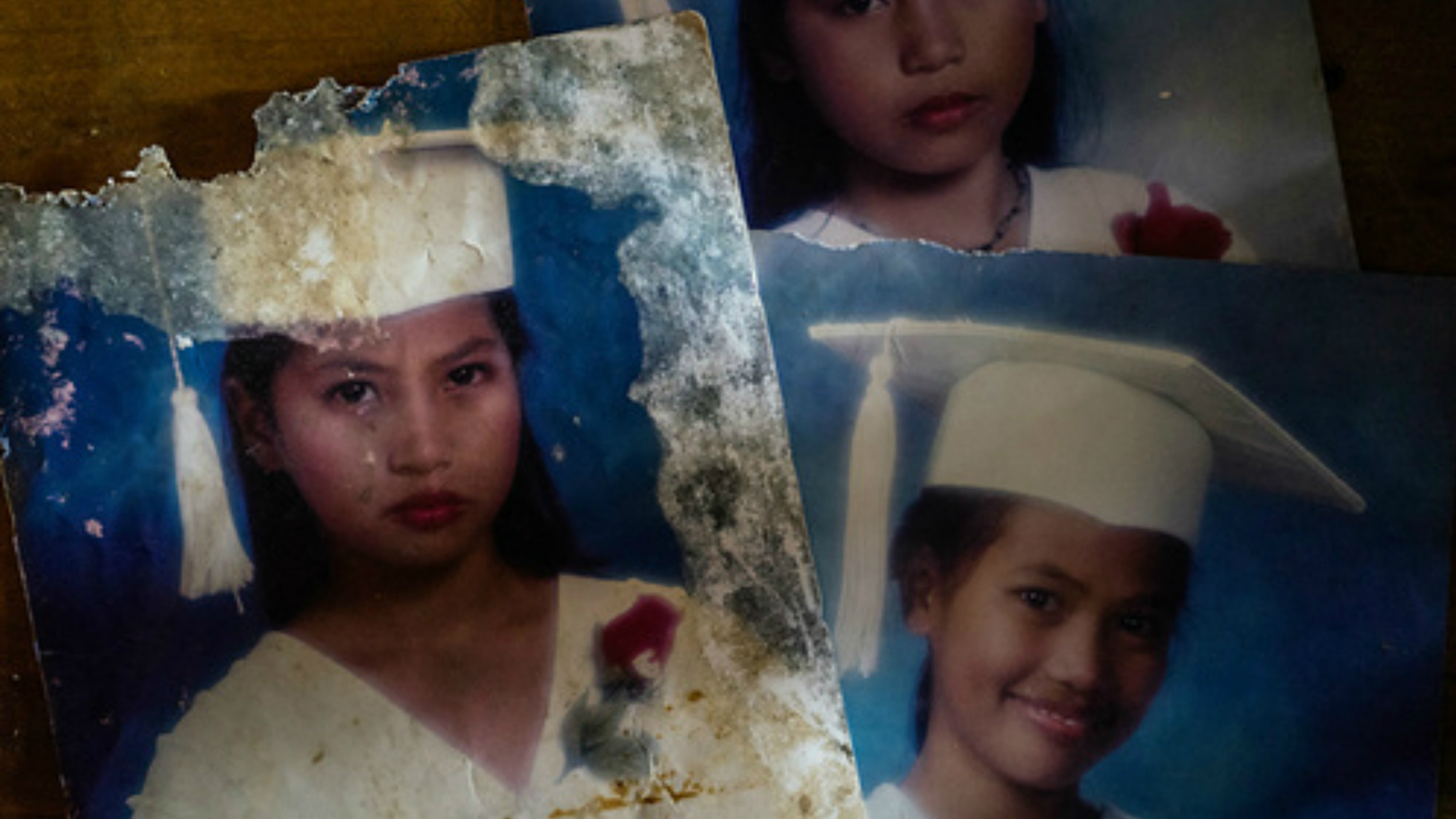
Salvaged water damaged graduation photos of sisters Jojo (left), Gemma (bottom right) and Joanne (top)
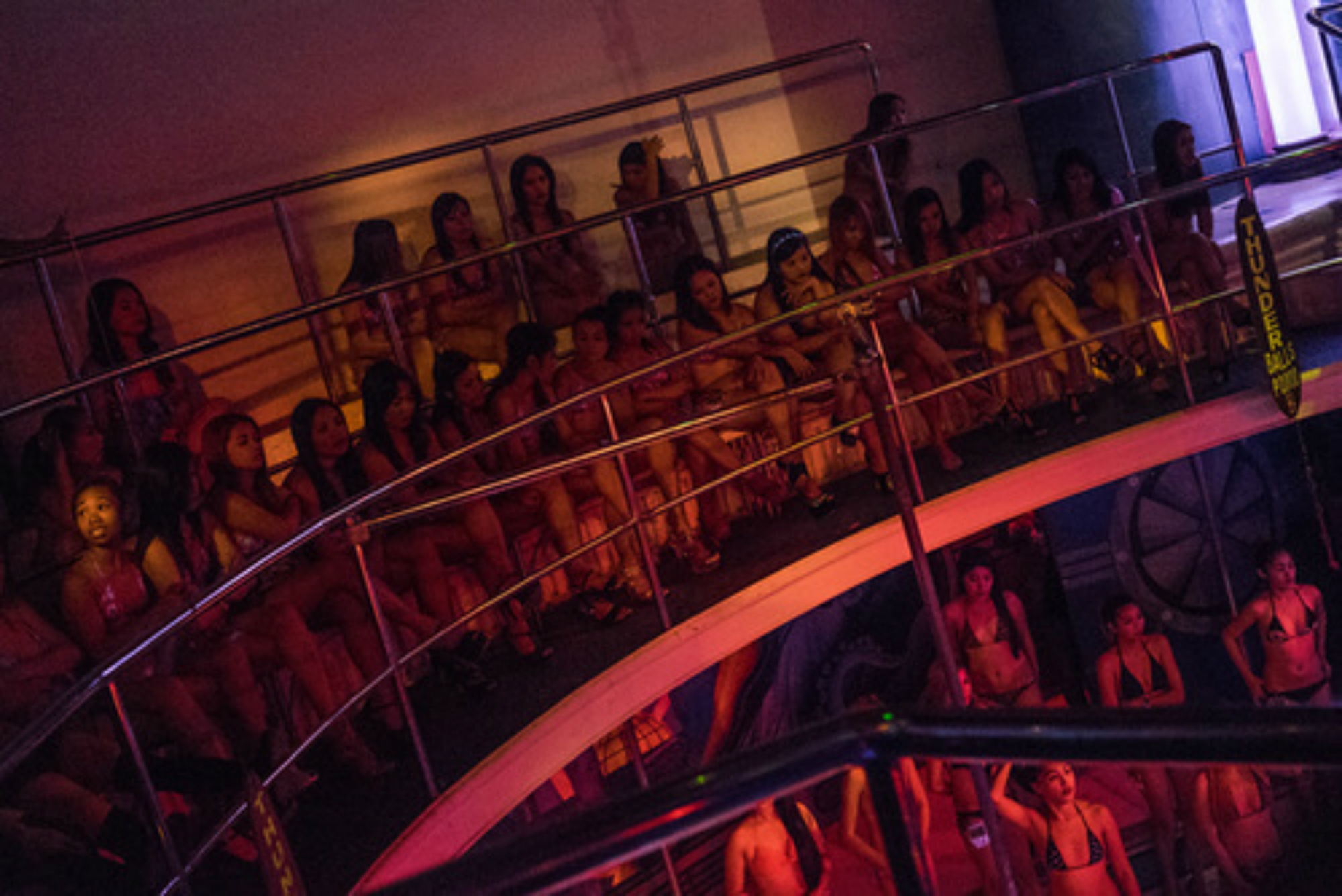
A scene from Fields Avenue, the red light district in Angeles City
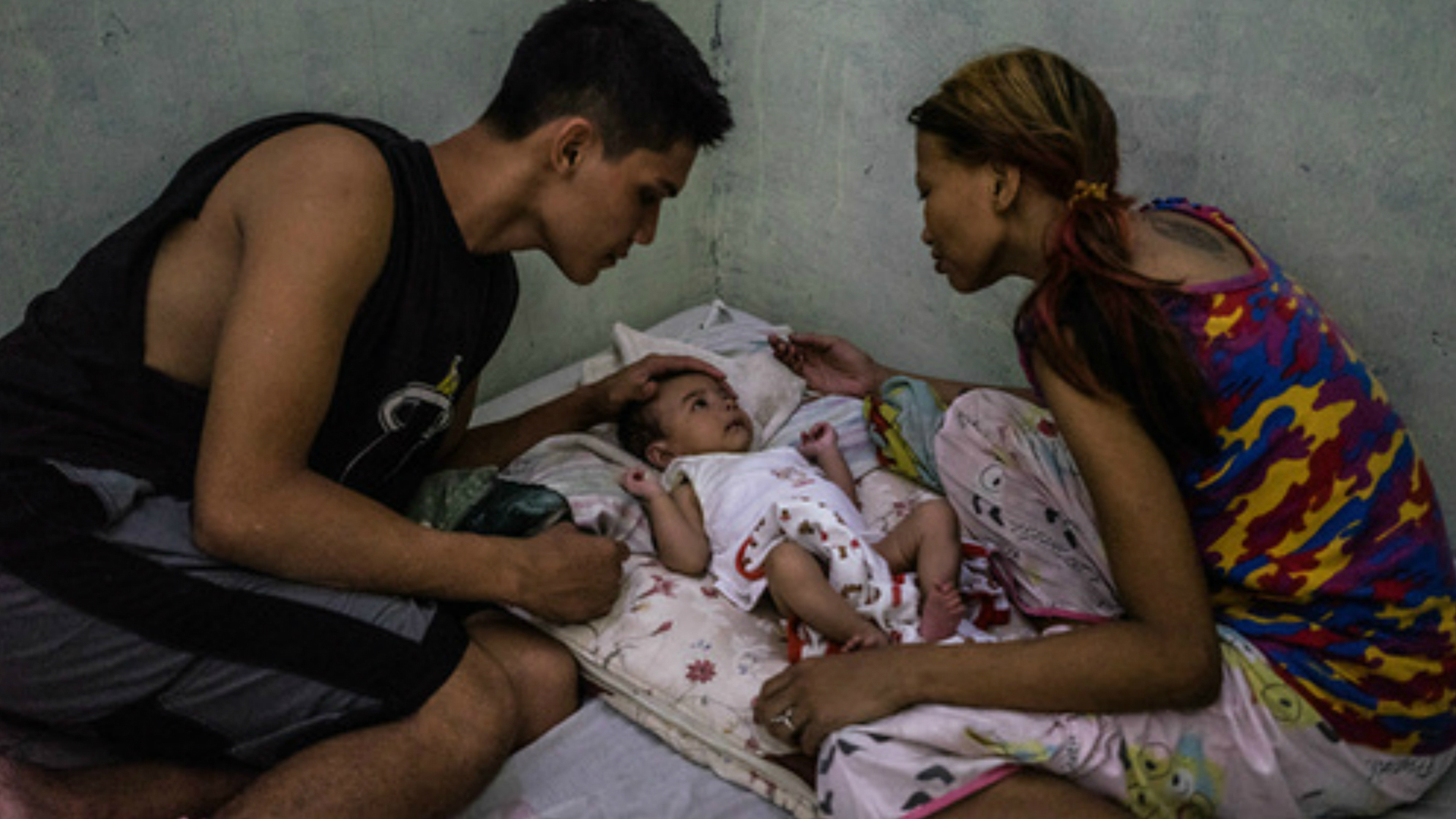
Filipina sex worker Jojo and her husband dote over their new child in their home in Angeles City
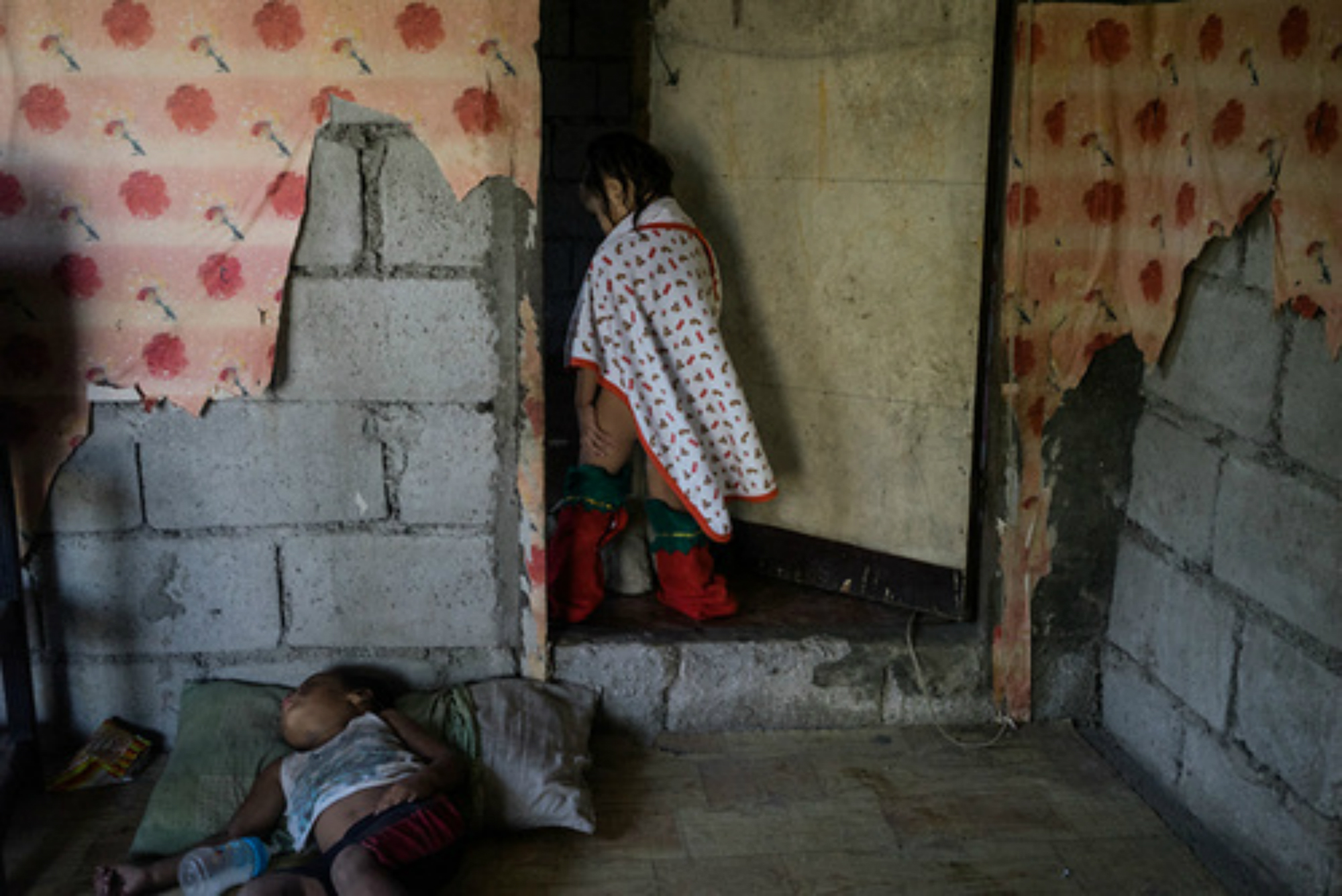
Jojo's daughter. She says she dreams that her daughter be a lawyer, so that her 'whoring could at least have borne some fruit'

Jojo smokes while walking on her way to work
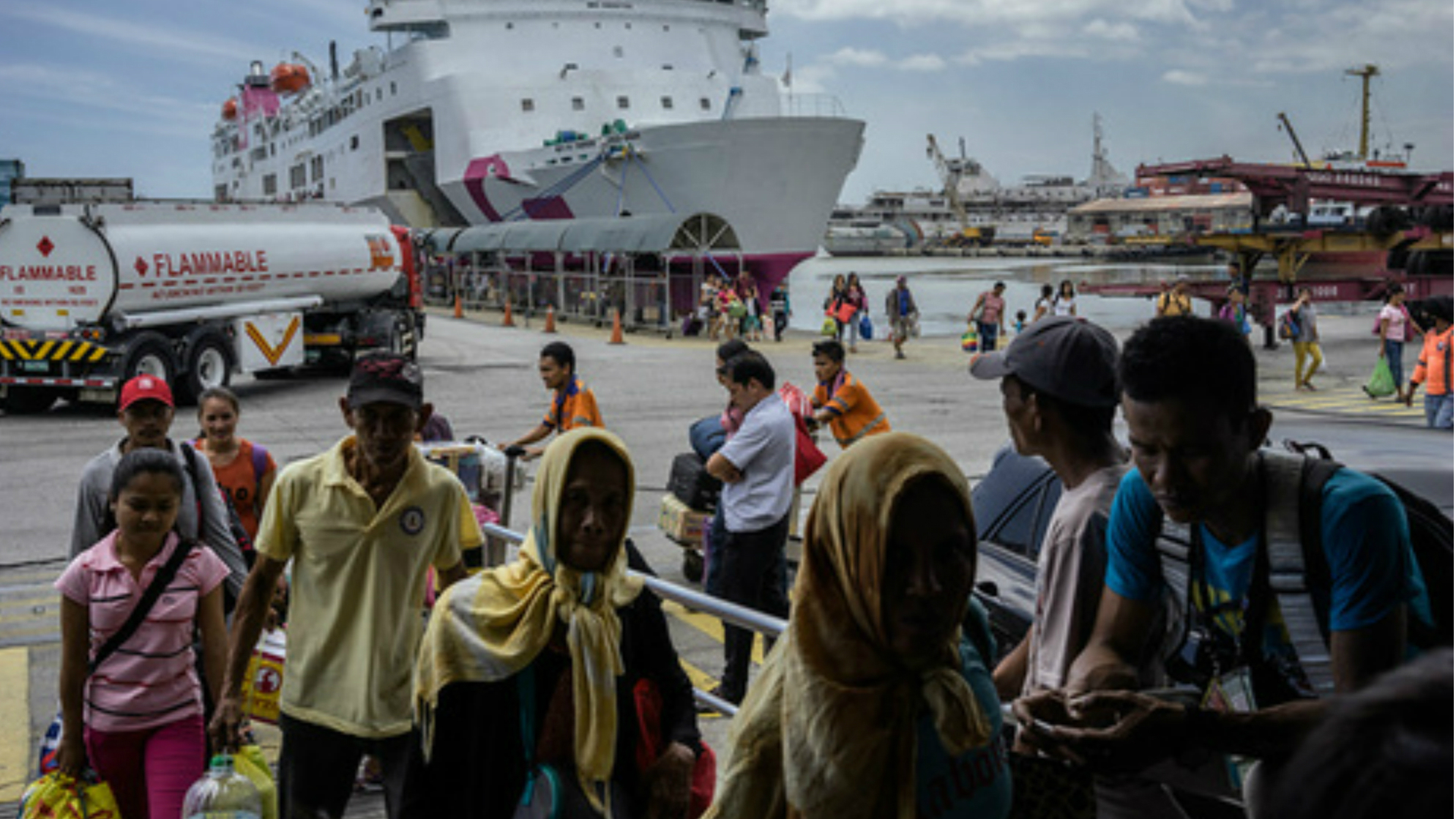
A boat arrives at the Manila port, where many girls make their way out of the province. The anti-trafficking unit intercepts female minors from the boats, interviewing them and looking for signs of trafficking
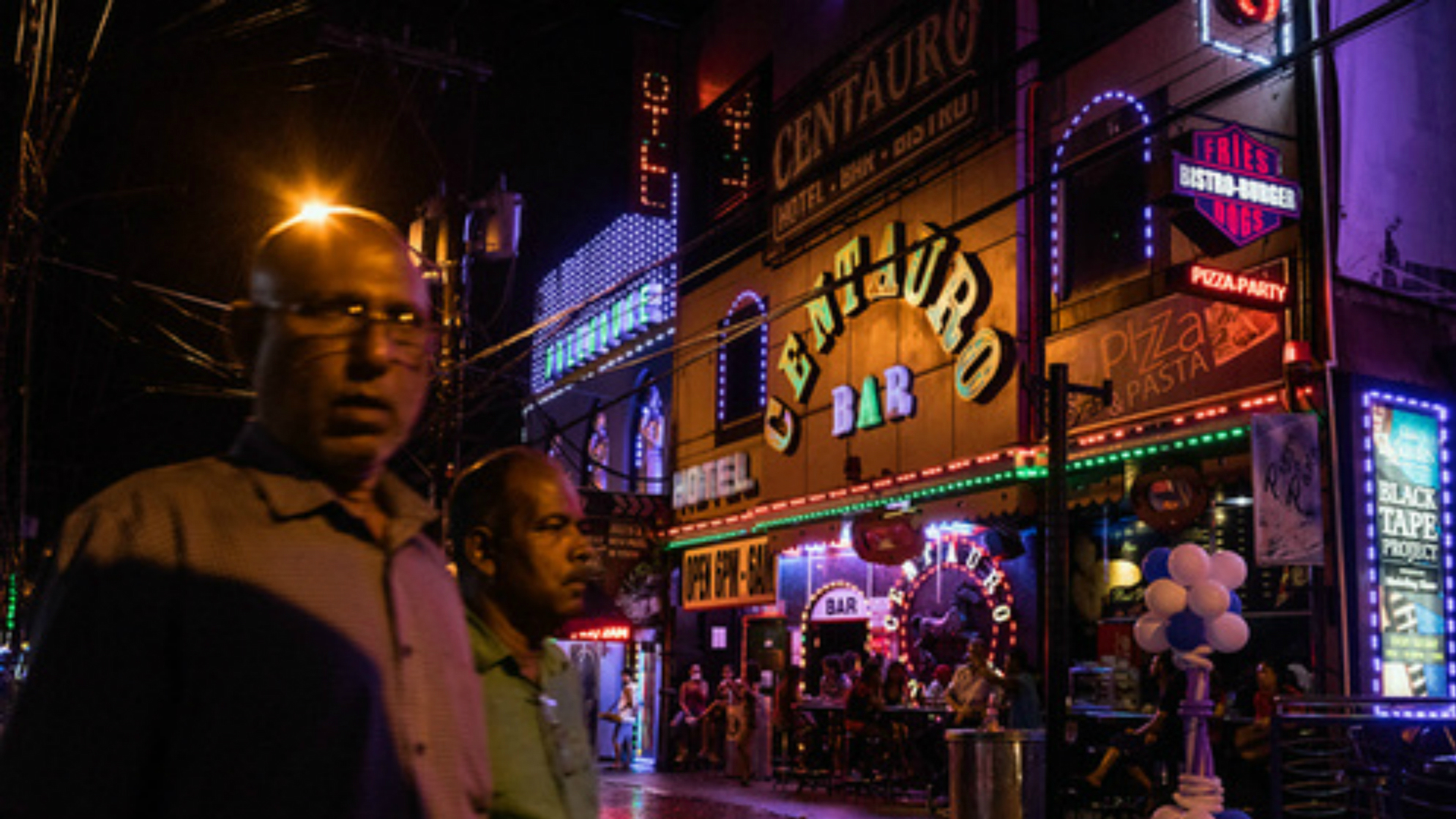
A scene from Fields Avenue, the red light district in Angeles City. It is widely known that about 80% of the women working in its bars are from climate change vulnerable areas
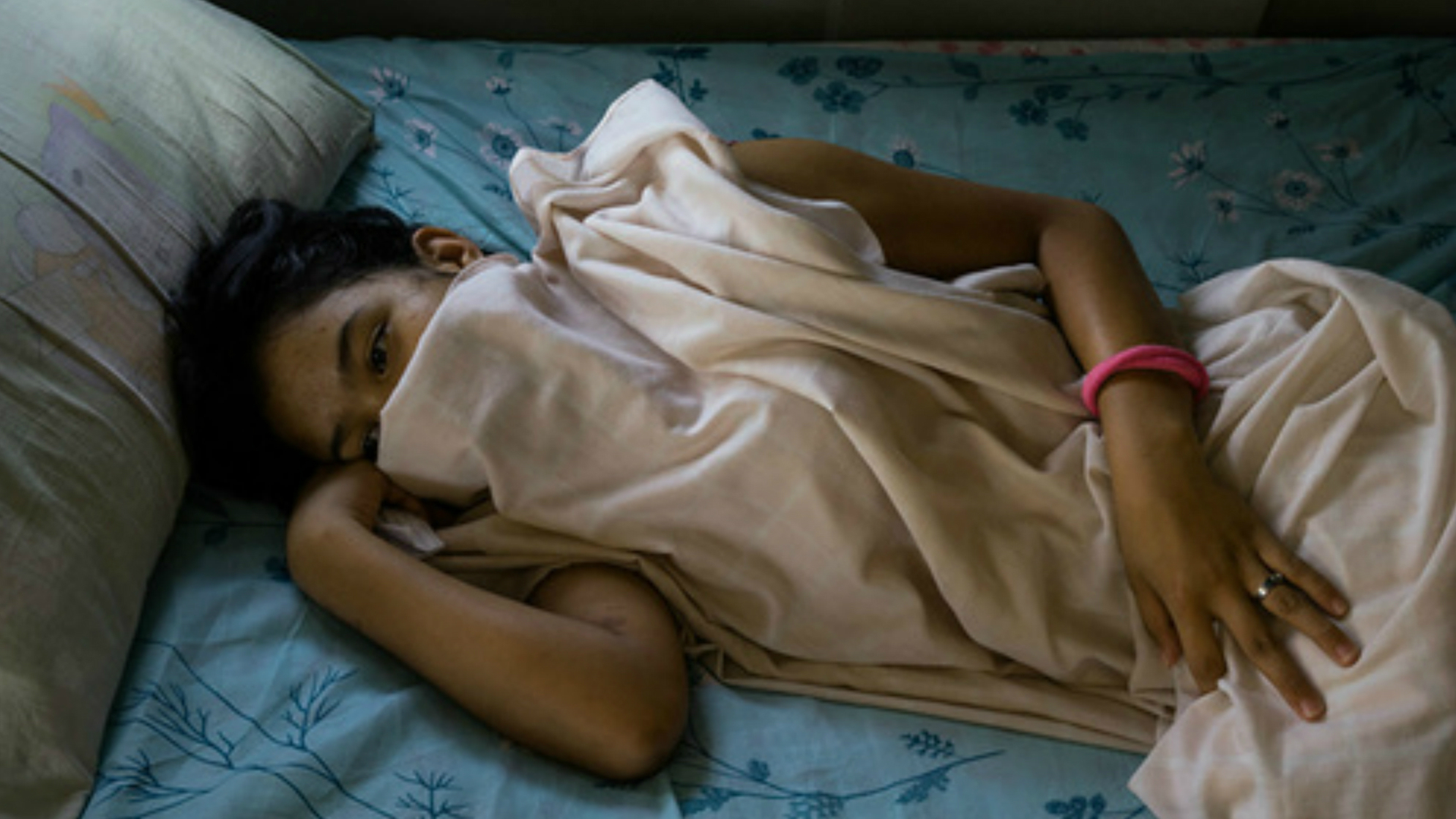
A young girl lies in her bed in a halfway house outside of Manila. Young girls who are rescued from trafficking enter halfway houses for rehabilitation, legal counselling and schooling
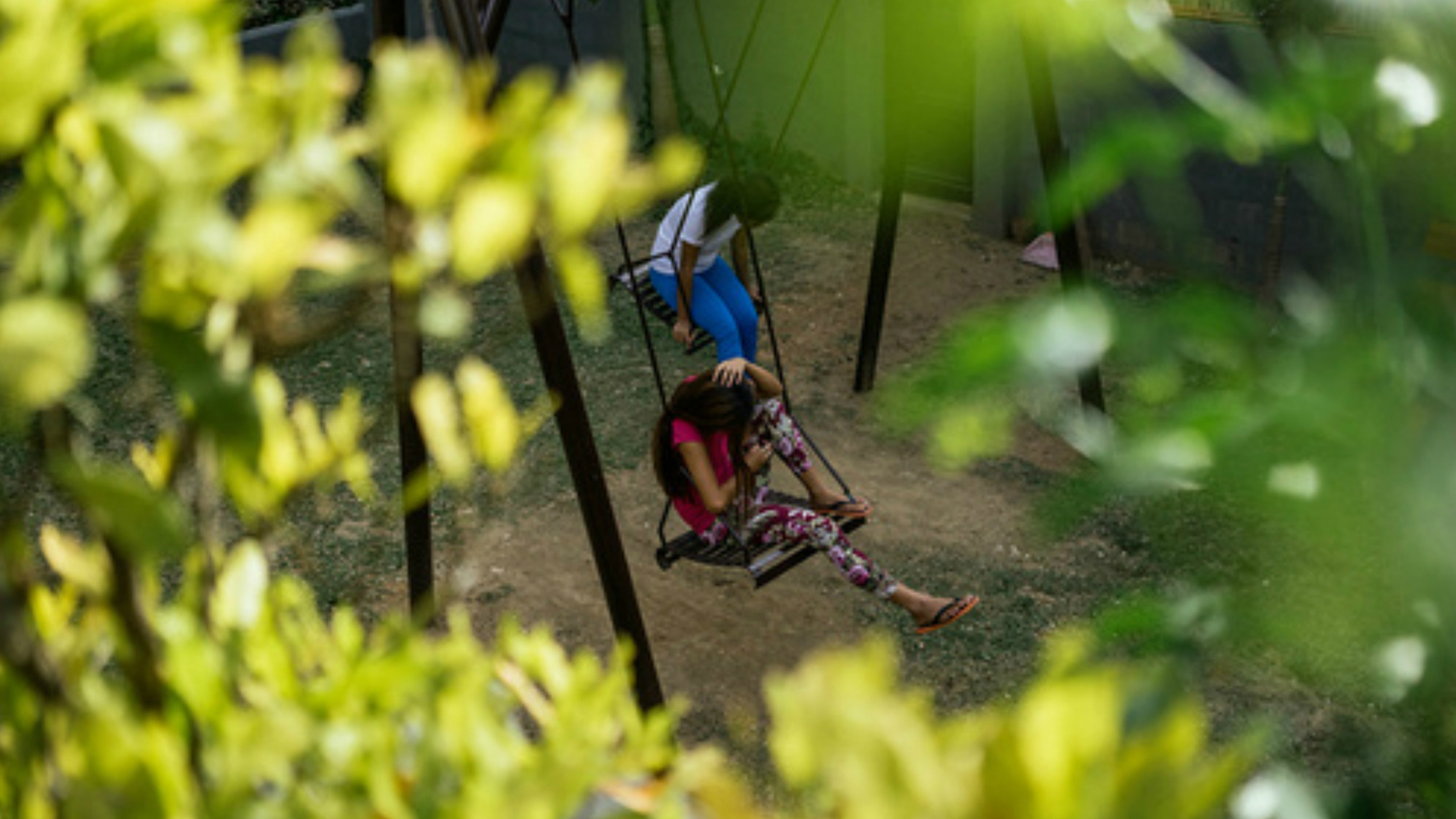
Young Filipina girls sit in the swings at a halfway house in Manila. Young girls who are rescued from the trade often stay here until they find legal employment
Niamh McCollum is Features Assistant at Marie Claire UK, and specialises in entertainment, female empowerment, mental health, social development and careers. Tackling both news and features, she's covered everything from the rise of feminist audio porn platforms to the latest campaigns protecting human rights.
Niamh has also contributed to our Women Who Win series by interviewing ridiculously inspiring females, including forensic scientist Ruth Morgan, Labour MP Stella Creasy and ITV’s former Home Affairs Editor Jennifer Nadel.
Niamh studied Law in Trinity College Dublin. It was after enrolling in a Law & Literature class on her year abroad in Toronto that her love of writing was reignited. In no particular order, her big likes are Caleb Followill, hoops, red wine, sea swimming, shakshuka and long train journeys.
